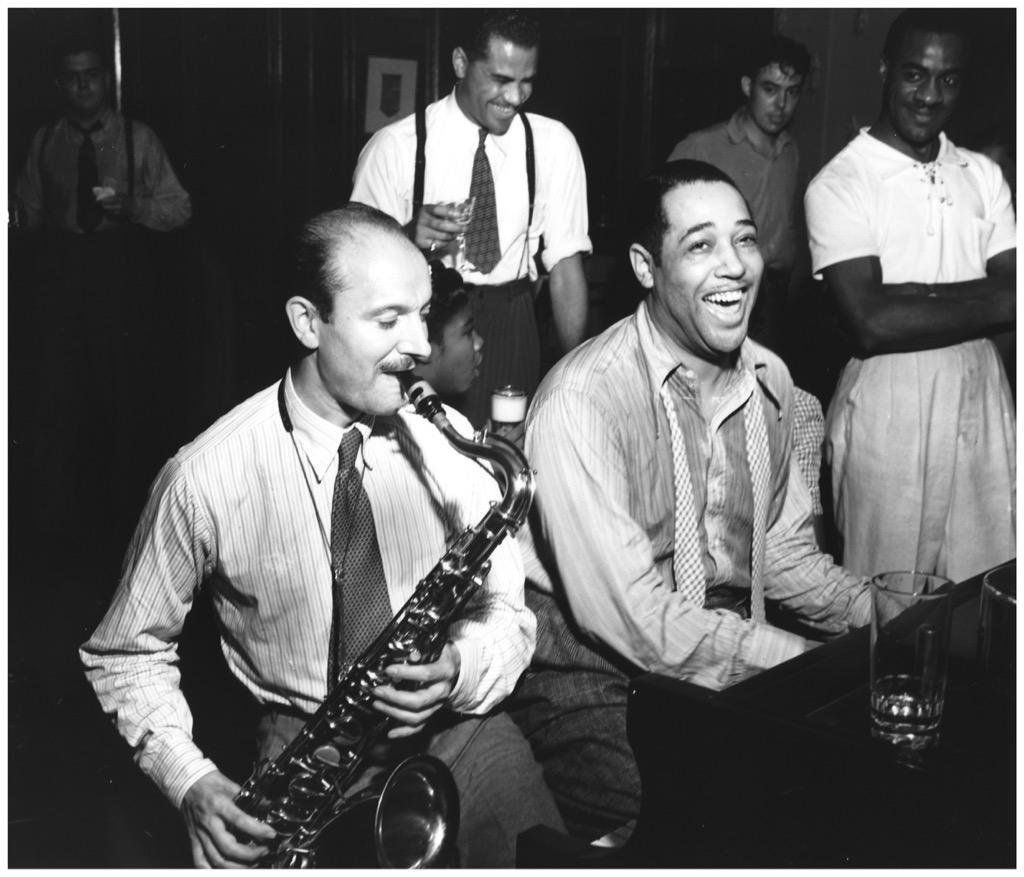A jazz Atlantis. There's a thought. ''For all that we have here, lying within the mouth of which we speak, is evidently a haven having a narrow entrance; but that yonder is a real ocean, and the land surrounding it may most rightly be called, in the fullest and truest sense, a continent.'' Plato, Timaeus
Listening to 'Jazz Among the British' (while it's not the Mediterranean contrasting with the Atlantic as Plato had in mind) my initial doubts about whether to linger long were dispelled and I was soon hooked stepping out of my comfort zone and entering a British jazz Atlantis however lost or not past or present it is on the precipice presently of Brexit to urgently decide. That rarity, a jazz feature series full of thoughtfulness and insight that is unusual in today's radio climate where radio executives spend far more time and effort over a daft jingle or piddling podcast than putting out coherent content of any lasting insight or clout that actually might detain anyone's interest for more than a few seconds.
Geoffrey Smith however certainly did not drone on and in 'The Essay' delivered only five short radio talks that reveal the famed erstwhile Jazz Record Requests presenter in reflective mood. Where the talks worked best was where they dwelt on pen portraits delivered as if in parenthesis of Duke Ellington in England, Duke's friendship with Bud Freeman and connections with royalty; or how about an intimate sounding series of reflections on Stan Tracey?
 Bud Freeman and Duke Ellington in 1939
Bud Freeman and Duke Ellington in 1939
Best of all is Smith on Sonny Rollins drawing on his memories of ''Newk'' right up to more recent years when he introduced the great saxophonist to the stage of the Barbican and became overcome with awestruck fandom backstage and how Smith recalls that as a youth back in America how he brought to a gig his own copy of The Bridge that Rollins signed, changing the ''J'' that he initially thought as the initial letter of Smith's first name when thinking to check and ask him, to make the alteration to the ''G.'' It's these little, seemingly trivial, details that Smith does so well to amplify and vividly as well as thoughtfully draw on to describe his own love affair with jazz that dates back to his time growing up in the States and becoming a jazz drummer and that blossomed in the UK getting used to such different attitudes such as his being or not being a ''jazzer,'' a term that he got to know but had never before leaving for England heard.
Very much old school only in a classic 20th century broadcaster sense that nonetheless has a certain uncloying period charm, Smith is partly in reverse an Alastair Cooke partly a Whitney Balliett in his clear, careful syntax and ear for a phrase delivered in that slightly sing-songy voice of his, a soft accent unaltered that much by 50 years or so living in the UK and that still makes you listen again through his enthusiasm and insights with utter engagement. SG
Tags: